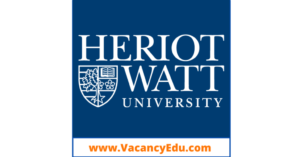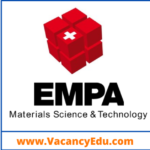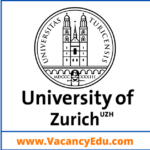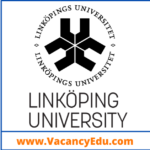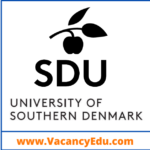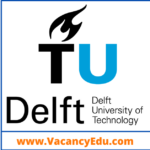Heriot-Watt University, Edinburgh, United Kingdom invites online Application for various Postdoctoral Fellowship in their different Departments. We are providing a list of Postdoc Fellowship positions available at Heriot-Watt University, Edinburgh, United Kingdom.
Eligible candidate may Apply as soon as possible.
(01) Postdoctoral Fellowship Position
Postdoc Fellowship Position summary/title: Postdoctoral Research Associate in Aerospace Engineering: UAV or Sports Aerodynamics
We are seeking to appoint one outstanding Postdoctoral Researcher with a passion for computational modelling and experimental validation in aerodynamics with aspirations of an academic career. The position will be aligned with advancing research in the new research group of Aerospace Engineering at Heriot-Watt University. The selected candidate will work under the supervision of Professor Bert Blocken.
Applicants should hold a PhD in Aerospace Engineering, Mechanical Engineering (specialisation Fluid Mechanics), Civil Engineering (specialisation Fluid Mechanics) or the like. Proven excellent expertise in CFD modelling is a strict requirement, additional expertise in wind tunnel testing is a plus. Expertise in integrating Artificial Intelligence in aerodynamics is also a plus.
Deadline : Open Until Filled
(02) Postdoctoral Fellowship Position
Postdoc summary/title: Research Fellow
We are seeking to appoint multiple Research Fellows (Tenure Track) with a passion for computational modelling and aspirations of an academic career. The positions will be aligned with advancing research in the McCabe and Cummings’ research groups at Heriot-Watt University and developing highly competitive candidates through the fellowship for academic careers. This will be done through focused professional and leadership development. Research in the McCabe group focuses on modelling self-assembly in biological systems and molecular theory to develop equations of state for a wide range of industry-inspired applications. In the Cummings group, the primary focus is on modelling capacitive energy storage devices. Jointly McCabe and Cummings conduct research on using machine learning methods to develop new materials for various applications and on software development for molecular modelling (i.e., the MoSDeF open-source software environment for automating molecular simulations: http://www.mosdef.org).
Applicants should hold a PhD in Chemical Engineering, Biochemistry, Chemistry or a related subject and have substantial experience in molecular modelling with either dynamics simulations and/or molecular based equations of state. Applicants will have experience with regular use of/contribution to GitHub or similar code repositories and be proficient in Python.
Applicants are expected to have excellent verbal and written communication skills, with a demonstrated ability to write refereed journal articles and present work at scientific/engineering conferences.
These full-time positions based in the School of Engineering and Physical Sciences at Heriot Watt University are funded for up to 3 years in the first instance. Post holders will be expected to develop independent research proposals (with support from Prof McCabe and Prof Cummings and others in the University including the university’s Research Engagement Directorate).
Deadline : 08/01/2024
Looking for more Postdoctoral Positions Click Here
(03) Postdoctoral Fellowship Position
Postdoc Fellowship Position summary/title: Research Associate in Molecular Biology
Heriot-Watt University is seeking to recruit an enthusiastic candidate to help deliver research in the area of Molecular Biology. The successful candidate will be employed for a period of 24 months at 100% FTE, as part of a project entitled “MicroSNARE: Automated Enrichment Of Circulating Tumour DNA For Improved Cancer Treatment”.
This research is funded by EPSRC and aims to develop novel solutions for the enrichment of circulating tumour DNA. The recruited researcher will be responsible for developing and testing methods to enrich specific sequence variants from within cancer patient’s cell free DNA samples. They will also collaborate with Bioengineers in the deployment of a fluid-handling robotic platform, whose performance will be compared to a microfluidic system. In addition, they may contribute to the acquisition and transport of clinical samples to Heriot-Watt campus, and will be responsible for the quality control, and data management throughout the project.
The post-holder will be required to demonstrate experience of standard molecular biology protocols. They will be expected to work as part of a wider research team.
The role will be based at the University’s campus in Edinburgh. The candidate will have the access to established university resources, and an induction programme will be delivered to all new appointees.
Deadline : 07/29/202
(04) Postdoctoral Fellowship Position
Postdoc Fellowship Position summary/title: Research Assistant/Associate in Machine Learning for Autonomous Alignment
The successful applicant will investigate the automation of processes used to optimise Complex Optical Systems using Machine Learning (ML) and Artificial Intelligent technologies.
Drawing upon the results and expertise developed within a major three year interdisciplinary UK Government funded project (EPSRC funded EP/V054497/1 “Developing Machine Learning-empowered Responsive Manufacture Of Industrial Laser Systems”) this project aims to create and demonstrating a robust, flexible, industrial system capable of carrying out alignment tasks autonomously.
Laser systems are typically highly engineered, complex structures, containing precision components that must be positioned to sub-micron accuracy. Currently, the exact positioning and alignment of these optical components is typically a largely manual process carried out by highly skilled engineers using multi-step active alignment processes.
This post is part of a major project that is focused on automating such alignment processes with systems that exploit state-of-the-art robotics (i.e. mechatronic) that combine sensing and machine intelligence to create a step change in the speed and accuracy of the process.
These processes will be driven by advanced optimisation and AI/ML approaches employing arrange techniques such as: transfer and reinforcement learning, supervised and unsupervised methods, and classical and multi-objective optimisation. Equally important to the focus on ML algorithms is the development of adaptive, possibly human-inspired, strategies for leaning complex muti-step alignment processes.
This is an integrated part of the on the project “Robotic Assembly and Maintenance” which, itself is part of the “Manipulation Challenge” of the “Smart Products Made Smarter” (EPSRC funded EP/X025365/1) Prosperity Partnership between Heriot-Watt University, University of Edinburgh, and Leonardo UK.
Deadline : 07/26/2024
(05) Postdoctoral Fellowship Position
Postdoc Fellowship Position summary/title: Research Associate in Multiphase Flow and Experimental Fluid Mechanics: Developing Responsive Gas-Solid Vortex Chambers
The Research Associate will work on the EPSRC-funded project REVOC – Towards smart manufacturing: Responsive Gas-Solid Vortex Chambers (EP/Y00888X/1) aimed at developing compact, robust, and modular technology to intensify gas-solid processes underpinning industrial decarbonization.
The appointed candidate will work with a computational PDRA, technicians, UGs students and the project lead, Dr Victor Francia, and contribute to the broader research group, xFlow – Complex Flow Technologies, meetings and activities designed to support REVOC. They will play a central role in the project driving the experimental component of the work, and the interaction with industrial partners and the advisory board. The applicant will develop and commission new facilities, liaise with mechanical workshops to prototype vortex chambers, and study the dynamic behaviour of centrifugal gas-solid fluidized beds.
REVOC will introduce for the first time, the means to control externally the structure of a gas-solid vortex (imagine particles swirling in a strong tornado) to optimise mixing in a gas-solid reactor, adapting its operation “on the fly” to changing targets, loading and feedstock. This new paradigm can transform a powerful technology platform emerging in Europe [1,2,3] and the US [4], into a high-efficiency low-capital solution that is broadly applicable for gas-solid operations. REVOCs can boost efficiency in catalytic reactors for CO2 valorisation, enable new energy generation and storage devices (e.g. looping, TCES) and Power-to-X processes (e.g. solar reactors), and intensify manufacturing of fast-moving consumer goods FMCGs (e.g. surface treatment, drying, coating). For further details regarding the technology, consult the xFlow vacancy description.
Deadline : 08/01/2024
Click here for “Postdoc Application Cover Letter Template”
Click here to know “How to write a Postdoc Job Application or Email”
(06) Postdoctoral Fellowship Position
Postdoc Fellowship Position summary/title: Research Associate in Environmental Monitoring and Communication
We are seeking a highly motivated Post Doctoral Research Associate with relevant experience and passion for impact-driven environmental and sustainability research specialising in ‘Environmental monitoring and Communication’ with a strong background in field-based natural data and the communication of complex scientific results to different audiences of the public, including local communities and policy, educational media sectors. This multi-faceted strategy combines cross-sector dialogue, identifying best practise local behaviour, stimulating technical innovations, and implementing environmental and forest management solutions based on new natural science data from the field to de-risk mangrove degradation.
The successful candidate will take leadership in the collection, quality assurance, visualisation and interpretation of natural science data and its translation to civic science, educational programs, and policy recommendations that leads to more effective management and consensus between local communities and stakeholders. The position is based at the Lyell Centre at Heriot-Watt University, Edinburgh and fully integrated with a multidisciplinary team of experts from the UK (Durham University, Edinburgh University, Heriot-Watt University) and the University of Suriname (UoS).
The successful candidate will work closely with social, technical and environmental experts at the University of Suriname, drone and remote sensing researchers at Durham University and social scientists at Edinburgh University to feed natural sciences into cross-project activities. The candidate will keep a close communication with the monitoring team in Suriname and provide additional training where required
Deadline : 07/29/2024
About Heriot-Watt University, Edinburgh, United Kingdom – Official Website
Heriot-Watt University (Scottish Gaelic: Oilthigh Heriot-Watt) is a public research university based in Edinburgh, Scotland. It was established in 1821 as the School of Arts of Edinburgh, the world’s first mechanics’ institute, and subsequently granted university status by royal charter in 1966. It is the eighth oldest higher education institute in UK. The name Heriot-Watt was taken from Scottish inventor James Watt and Scottish philanthropist and goldsmith George Heriot.
Known for its focus on science and engineering, it is one of the 39 old universities in the UK comprising the second cluster of elite universities after Oxbridge.
Heriot-Watt was established as the School of Arts of Edinburgh by Scottish businessman Leonard Horner on 16 October 1821. Having been inspired by Anderson’s College in Glasgow, Horner established the School to provide practical knowledge of science and technology to Edinburgh’s working men. The institution was initially of modest size, giving lectures two nights a week in rented rooms and boasting a small library of around 500 technical works. It was also oversubscribed, with admissions soon closing despite the cost of 15 shillings for a year’s access to lectures and the library.
The School was managed by a board of eighteen directors and primarily funded by sponsors from the middle and upper classes including Robert Stevenson and Walter Scott. It first became associated with the inventor and engineer James Watt in 1824, as a means of raising funds to secure permanent accommodation. Justifying the association, School Director Lord Cockburn said:
Disclaimer: We try to ensure that the information we post on VacancyEdu.com is accurate. However, despite our best efforts, some of the content may contain errors. You can trust us, but please conduct your own checks too.
Related Posts
- Postdoctoral Fellowship (36) at Harvard University, United States

- Postdoctoral Fellowship (03) at EMPA, Zurich, Switzerland

- Postdoctoral Fellowship (14) at University of Zurich, Switzerland

- Postdoctoral Fellowship (04) at Maastricht University, Netherlands

- Postdoctoral Fellowship (09) at Groningen, Netherlands

- Postdoctoral Fellowship (05) at Linkoping University, Sweden

- Postdoctoral Fellowship (17) at University of Southern Denmark, Denmark

- Postdoctoral Fellowship (28) at University of Cambridge, United Kingdom

- Postdoctoral Fellowship (13) at Delft University of Technology (TU Delft), Netherlands


